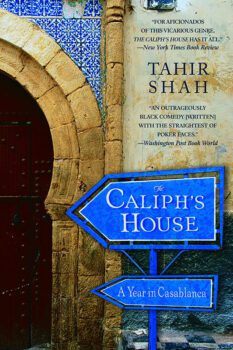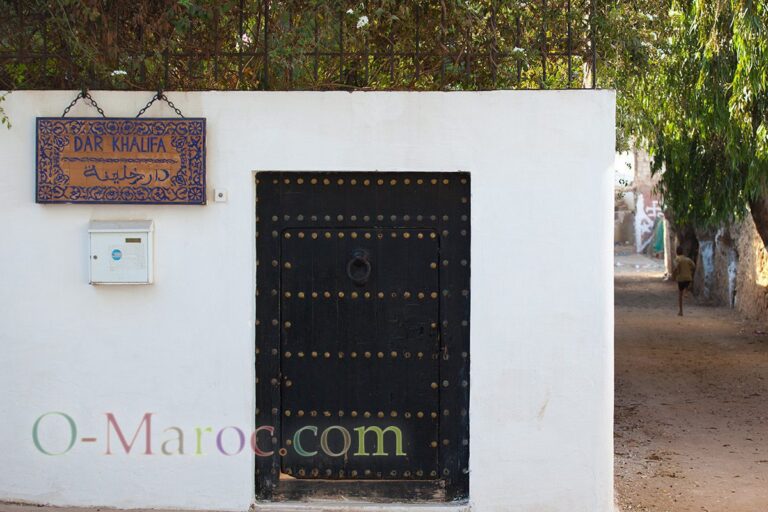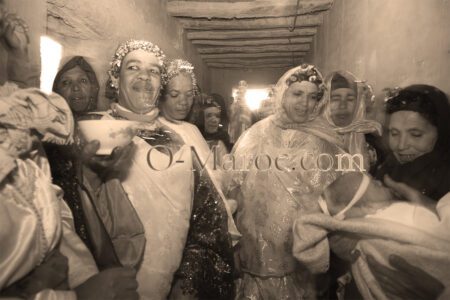Would you like to know what to expect when you move to Morocco? Would you like to have the keys to understanding this civilisation, which is fundamentally oriental and Muslim, even if it is masked by the suits and ties worn by the executives of Casablanca? Then immerse yourself in The Caliph's House, one of the funniest and truest books I’ve ever read.
The Caliph’s House: the story

His problems are complicated by the sorcery and jinns that settled in the riad when it was empty: the caretakers and workers explain everything that goes wrong because of them, and often refuse to work. So an exorcism must be performed to rid the house of its unwanted inhabitants, and allow Tahir Shah and his family to live there in peace!
Following in the footsteps of Peter Mayle, who recounts his integration in France in “A year in Provence”, Tahir Shah, a Londoner of Afghan origin, tells the story of his move to Morocco. It’s a country he thought he knew well, since his grandfather had settled in Tangiers, and his father often took them on the Moroccan roads, whose mountains reminded him of his homeland. Although brought up in England, he spoke Arabic and was steeped in Oriental culture (he would talk more about the transmission of this culture in his second book about Morocco, Le café Mabrouk), and yet the first year he spent in Casablanca would plunge him into a whirlwind of problems, misunderstandings and discoveries.
Like almost everyone else, he falls in love with an old house, a riad, not in the medina of Marrakesh, but on the edge of the chic district of Anfa, in the heart of a shanty town doomed to destruction one day. After buying the house and settling in with his wife and two children, he set about restoring it.
The stories of plumbers, bricklayers and shoddy workmanship will bring a smile to the faces of all those who have been there, and serve as a warning to others: you can’t do work in Morocco unless you’re there to supervise it!
Why I loved this book
Firstly, because it’s funny. Anyone who knows Morocco can’t help but laugh, as they recognise situations in which they too have grumbled about delays, misunderstandings, etc.
Secondly, because the author has the particularity of being both “on the inside” and “on the outside”. With his Afghan origins and his many travels as a child, Tahir Shah is also a man from the Eastern world, and he understands Morocco better than many of us. He tells us things that we are less directly confronted with, especially when we arrive in Morocco as a professional expatriate, or as a couple. You have to talk to Moroccans and gain their trust to discover Aïsha Quandisha, the djinns and the exorcists.
But Tahir Shah is Afghan, not Moroccan. And above all, he was brought up in London. So he’s steeped in Western culture too. He has the same expectations, the same surprises, the same irritations as we do. It’s just that he finds the keys a little easier…
What it will bring you
It’s a book to be read with a pencil and a notebook next to it, to write down (almost) everything. Because it’s funny and sensitive at the same time, its lessons are perhaps easier to assimilate than the advice we can give you here, or that you may see on forums.
It’s also an optimistic book: despite the moments of discouragement, the arms that are regularly lowered, it’s the story of someone who has succeeded in living in Morocco. Tahir Shah is still there today, and he’s very happy. So why shouldn’t you?
 A typo or syntax error? You can select the text and hit Ctrl+Enter to send us a message. Thank you! If this post interested you, maybe you can also leave a comment. We'd love to exchange with you !
A typo or syntax error? You can select the text and hit Ctrl+Enter to send us a message. Thank you! If this post interested you, maybe you can also leave a comment. We'd love to exchange with you !




